Search Results
Showing results 1821 to 1840 of 2051
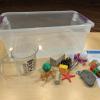
Sink or Float
Source Institutions
In this activity, learners will make predictions and experiment with different objects to see if they sink or float.
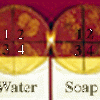
Handwashing Laboratory Activities: Fingerprint Technique
Source Institutions
In this lab (Activity #1 on page), learners compare bacteria growth on two petri dishes containing nutrient agar: one that has been touched by a finger washed only with water and one that has been tou

Rubberband Rockets
Source Institutions
This fun and simple activity is a rubberband rocket design challenge! Learners will explore how tail fins can help to stabilize a flying object, while also exploring potential and kinetic energy.
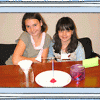
Make Your Own Weather Station
Source Institutions
This three-part activity shows learners how to build three meteorology tools: a wind vane, a rain gauge, and a barometer.
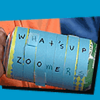
Scytale Messages
Source Institutions
In this activity, learners use a soda can to decode a secret message. Learners wrap scytale (pronounced ski-tally) code around a can and challenge friends to see if they can crack the codes.

Soil Profile
Source Institutions
In this activity, learners will create a soil profile in a bottle. They will learn about the organic and inorganic matter found in soil and observe as it separates into layers in the bottle.

Scale Models
Source Institutions
In this activity, learners explore the relative sizes and distances of objects in the solar system.
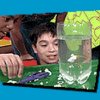
Flinker
Source Institutions
In this activity, learners make a foam packing peanut "flink"--neither float away nor sink--in water. Learners experiment with materials to make a Flinker that "flinks" for 10 seconds.

Conveyor Engineering
Source Institutions
In this activity, learners explore the engineering behind the conveyor belt and consider the impact this invention has had on transportation and the coordinated shipping and delivery of goods.

Spinning Your (Color) Wheels
Source Institutions
In this optics activity, learners use everyday materials to make a color wheel. When learners spin the wheel like a top, they will be surprised to see all the colors mixing together to appear white.
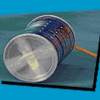
Spool Racer
Source Institutions
In this physics activity, challenge learners to make a rubber band-powered spool racer. Demonstrate principles of motion as well as potential and kinetic energy.
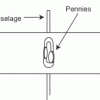
Lift Experiment
Source Institutions
In this experiment, learners investigate how the size of a wing affects lift. Learners count the number of pennies an egg crate plane wing can hold until the plane will no longer fly.
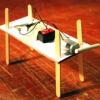
Minibot
Source Institutions
In this activity, learners build a mini dancing robot. This engineering activity introduces learners to electricity, circuits, switches, conductivity, and motors.

Fraction Penguin
Source Institutions
In this craft activity, learners will recognize, name, and compare the fractions 1/2, 1/4, and 1/8 by constructing a penguin out of portions of paper circles.
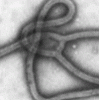
The Variety and Roles of Microbes
Source Institutions
In this activity, learners use sets of cards to assign microorganisms to different groups.
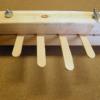
Thumb Piano
Source Institutions
In this activity, learners explore sound by constructing a simple piano out of wood and craft sticks.
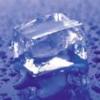
Keep it Cool
Source Institutions
In this activity, learners explore how engineers have met the challenge of keeping foods, liquids, and other items cool.

Hatch-a-Cyst
Source Institutions
What is the optimal environment for hatching brine shrimp? Using a scaffold, learners design and conduct experiments testing the effect of a single abiotic factor on brine shrimp cyst hatch rate.

Sand Paper Rankings
Source Institutions
In this activity (2nd activity on the page), learners explore the sensitivity of their sense of touch.
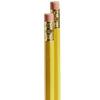
Depth Perception
Source Institutions
In this easy demonstration (3rd on the page), learners explore depth perception by conducting a test with two pencils.
